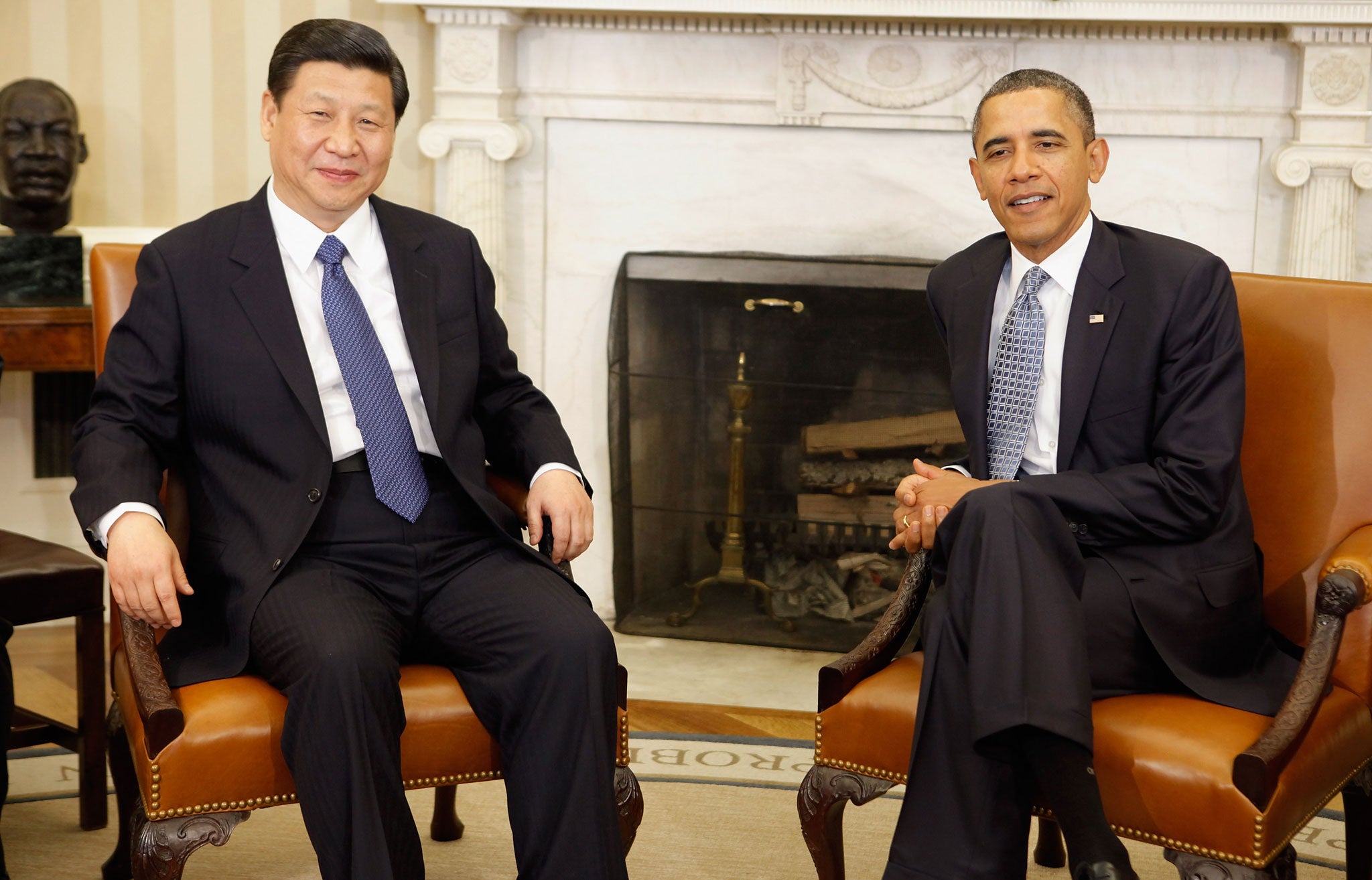When – not if – China overtakes the US, normality will have returned
The possibility that China's economy will outgrow America's in the next three years gives added spice to Obama's meeting with President Xi Jinping


In the late 1880s, something extraordinary happened. The United States passed China to become the world’s largest economy, dislodging China from the pole position it had held since 1500 – prior to that, India had been the world’s largest, with an economy more than double the size of the Roman Empire at the time of Christ, with China at number two.
Some time soon, probably within the next decade, that switch of the 1880s will be reversed. China will pass the US in economic size, though, of course, in terms of living standards and technical competence it will remain far below. It is conceivable that China will, at least on some measures, pass the US within the next three or four years; if that were so, the loss of leadership might even occur under the presidency of Barack Obama.
This possibility gives an inevitable spice to the meeting between President Obama and the Chinese President, Xi Jinping, in California later this week: the leader of the rising power meeting the leader of the declining one.
But it will be the broader questions associated with the overtaking that will dominate our lives for the next generation and beyond. In one sense, China is merely reverting to a position it had held for 400 years, because in the broad sweep of history the US leadership of 140 years is quite short. But passing the baton is never easy and you could see tensions mounting and maybe becoming destructive.
So what do we know? The first point is that there will be no single passing moment. It depends on whether you take market exchange rates or currencies at purchasing power parity. It depends on what you include in the economy – do you include work that is not formally paid for, for example? And since all economic data is pretty mushy, and China’s more mushy than most, any particular date you pick will be wrong. However, the OECD thinks the passing point will be before the end of 2016, working with exchange rates at purchasing power parity. The Economist Intelligence Unit thinks it will be about 2021. Goldman Sachs’ BRICs report, using market exchange rates, puts it at around 2027, roughly the same time as the US National Intelligence Council. HSBC, however, thinks it will not be until the 2040s.
That is a pretty wide spread of dates. What everyone agrees on, though, is that China’s growth will slow down and that, in terms of income per head, it will become a middle-income country rather than a truly rich one. By 2030, China will have the same sort of living standards as we did in the 1950s, rather than the living standards the US has now. There is also general agreement that the main drivers of global growth for the next generation will be the countries of the emerging world, led by China, rather than the present developed world, led by the US. So what we are experiencing is a broader transfer of power than simply between the US and China; it is between the developed world and the emerging world.
This leads to a string of questions and concerns. There are the obvious ones of geopolitical power: will China seek to project power aggressively both within and beyond what it sees as its own sphere of influence? That is attracting a huge amount of attention. But there are other softer, more subtle issues. Will Chinese ideas of economic management affect other parts of the world, including our own? To what extent will Chinese social attitudes affect our own? Can we learn from Chinese healthcare and education?
For most of us, accustomed to living in a world of Western intellectual leadership, it might seem difficult to acknowledge the probability that the world’s largest economy will have a much bigger influence on the world of ideas than it has in the past. But anyone doubting that we have much to learn should consider what is happening in education and health.
One is that on the OECD’s study of 15-year-old’s abilities, the so-called PISA study, Shanghai students achieved the highest results in all three categories of reading, mathematics and science. The aim of this study is not to measure the results of learning by rote, but rather to gauge student’s abilities to use the knowledge they have acquired in practical ways. So you cannot dismiss this as the result of Chinese “cramming”. Shanghai is the richest place in mainland China, but the OECD commented that results were close to the OECD average even in very poor areas.
A second is in healthcare in the richest parts of what is now greater China. Hong Kong has a lower infant mortality rate than most of Europe (and quite a lot lower than that of the UK), while Macau is now second only to Japan in life expectancy.
So what is happening is not just China overtaking the US in the headline size of GDP; parts of China are overtaking the West in the areas we thought we were best at – and that is surely a more important measure of success than any “mine’s bigger than yours” bragging.

Join our commenting forum
Join thought-provoking conversations, follow other Independent readers and see their replies